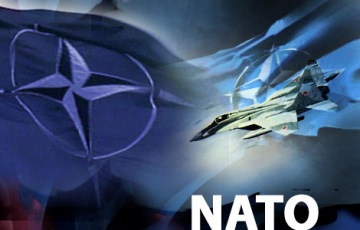I wanted to do a quick criticism of the UNWG’s latest press release about US PSC’s in Afghanistan. Why would they criticize US oversight of PSC’s, and yet not take a critical look or even mention the UN’s use of PSC’s in Afghanistan?
UN experts call for stronger oversight of US private security contractors in Afghanistan and I would like to hear what the UN has as a means of accountability over a PSC like IDG Security? What if one of those guards committed a criminal act–what would the UN do with that individual? How about the vetting? Do they know that every guard is former Gurkha or has a clean background? How about the other contracted and sub-contracted companies the UN uses?
The other thing I was curious about is what happens to a contracted company the UN uses that violates their ‘code of conduct’ called the UN Global Compact? Do they prosecute the individuals in a UN tribunal, or do they just fire them and ‘hope’ that the home country is able to do something with them? Pfffft. Where’s the ‘teeth’, as they say?
It would seem to me that the UN is doing the exact same things as the US in terms of using PSC’s, but continues to only point fingers at others. I would classify that as ‘hypocritical’, don’t you think? By the way, if UNWG is curious at all, they should contact UN staff in Afghanistan and ask them about the ‘other’ companies they are using. Just so they can have all the information they need to make a report about the ‘UN’s use of PSC’s in war zones’.-Matt
————————————————————–
Press Release from UNWG
GENEVA (19 October 2010) – The UN Working Group on the use of mercenaries welcomed as “a step in the right direction” a recent report by the US Senate Committee on Armed Services into the role and oversight of US private security contractors in Afghanistan. “However, more should be done to address the problems raised in that inquiry,” said the Chairperson of the expert body, Alexander Nikitin. “In particular, there should be stronger oversight of US private security contractors in Afghanistan and elsewhere.”
“The findings of the US Senate report are consistent with those of the Working Group following its visit to Afghanistan* in April 2009,” said Mr. Nikitin, noting that the study shows the many problems raised by the absence of adequate oversight over the private military and security companies contracted by the US Government in Afghanistan.
“Because of the lack of effective vetting procedures, in particular, some of these companies employed individuals who may have been involved in human rights abuses in the past and continued to be involved in human rights violations while employed by these companies,” he said.
The Working Group noted during its visit to Afghanistan that former armed elements, whether considered to be warlords or anti-Government elements, were not effectively prevented from registering as employees of officially licensed private security companies.
Given the lack of systematic and effective vetting and training procedures, and the absence of adequate sanctions in case of violations, the UN expert body had recommended that Governments contracting private security companies in Afghanistan establish adequate oversight and accountability mechanisms.
Later that year, during the Group’s visit to the United States in July, it also recommended that the US Government establish a more vigorous vetting procedure before awarding contracts. “The problems faced in Afghanistan illustrate once again the importance of and the pressing need for a strong system of regulation and oversight of private military and security companies.” said Mr. Nikitin.
“The matters discussed in the US Senate report are too important to be left to self-regulation of companies,” the Group’s Chairperson stressed. “While voluntary codes of conduct for private contractors are welcome, they are not sufficient to ensure that States regulate and monitor the activities of the companies they contract to carry out State functions, and establish accountability mechanisms to address human rights violations.”
A draft text for a new convention on the regulation of private military and security companies was presented by the expert body to the Human Rights Council last month.The Council decided to establish an open-ended intergovernmental working group to consider the possibility of elaborating an international framework on the regulation, monitoring and oversight of the activities of private military and security companies, taking into account the principles and provisions for a new legally binding instrument proposed by the Working Group on mercenaries.
“The self-regulatory codes of conduct of the security industry have failed in the past ten years to establish effective accountability,” said Mr. Nikitin. “In this regard, we hope that all States, including the United States where many private military and security companies are established, will seriously consider participating in the process initiated by the Human Rights Council aimed at setting up an international regulatory framework for private military and security companies.”
The Working Group on the use of mercenaries as a means of violating human rights and impeding the exercise of the right of peoples to self-determination was established in 2005 by the Commission on Human Rights. It is composed of five independent experts serving in their personal capacities:, Mr. Alexander Nikitin (Chairperson-Rapporteur – Russian Federation), Ms. Amada Benavides de Pérez (Colombia), Mr. José Luis Gómez del Prado (Spain), Ms. Najat al-Hajjaji (Libyan Arab Jamahiriya) and Ms. Faiza Patel (Pakistan).
Link to press release here.
——————————————————————
Participant Information
IDG Security Pte Ltd.
• Participant since 2008/03/06
• Status Active
• Country Singapore
• Organization Type SME
• Ownership Private Company
• Sector General Industrials
• Letter of Commitment UN_Global_compact_Feb_08.pdf
• Website http://www.idg-security.com
Next Communication on Progress
IDG Security Pte Ltd. is required to communicate on progress by 2011/03/06.
Link to UN Global Compact website here.
![]()
